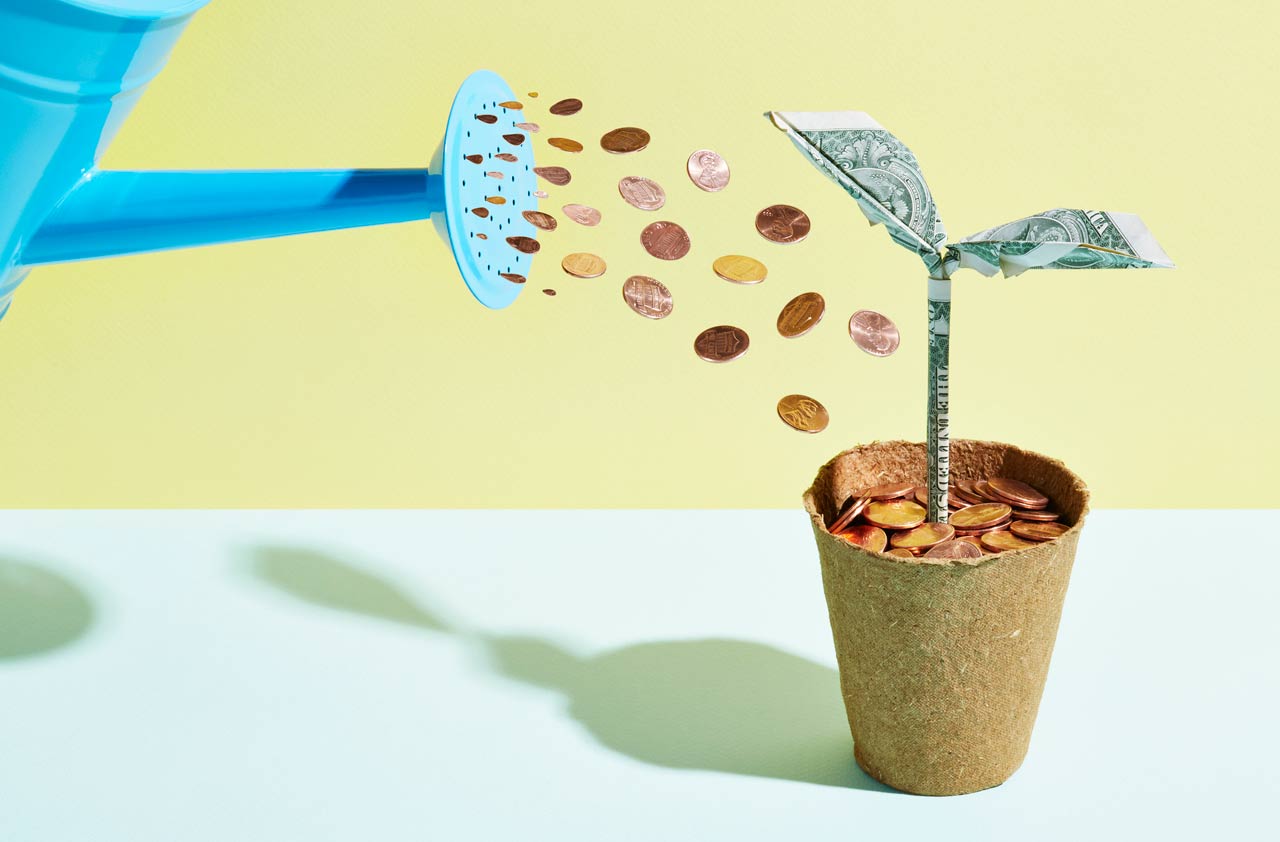What's Going on with Bonds During the Coronavirus?
To understand, you need to know a few bond basics. Here's a primer on how bonds work, and how disruptive events like the coronavirus and falling interest rates can affect their performance.


Profit and prosper with the best of Kiplinger's advice on investing, taxes, retirement, personal finance and much more. Delivered daily. Enter your email in the box and click Sign Me Up.
You are now subscribed
Your newsletter sign-up was successful
Want to add more newsletters?

Delivered daily
Kiplinger Today
Profit and prosper with the best of Kiplinger's advice on investing, taxes, retirement, personal finance and much more delivered daily. Smart money moves start here.

Sent five days a week
Kiplinger A Step Ahead
Get practical help to make better financial decisions in your everyday life, from spending to savings on top deals.

Delivered daily
Kiplinger Closing Bell
Get today's biggest financial and investing headlines delivered to your inbox every day the U.S. stock market is open.

Sent twice a week
Kiplinger Adviser Intel
Financial pros across the country share best practices and fresh tactics to preserve and grow your wealth.

Delivered weekly
Kiplinger Tax Tips
Trim your federal and state tax bills with practical tax-planning and tax-cutting strategies.

Sent twice a week
Kiplinger Retirement Tips
Your twice-a-week guide to planning and enjoying a financially secure and richly rewarding retirement

Sent bimonthly.
Kiplinger Adviser Angle
Insights for advisers, wealth managers and other financial professionals.

Sent twice a week
Kiplinger Investing Weekly
Your twice-a-week roundup of promising stocks, funds, companies and industries you should consider, ones you should avoid, and why.

Sent weekly for six weeks
Kiplinger Invest for Retirement
Your step-by-step six-part series on how to invest for retirement, from devising a successful strategy to exactly which investments to choose.
If you’re like most investors, you’ve probably been unnerved by the coronavirus-fear-driven gyrations in the markets. But while most commentators focused on stocks, much less ink and bytes were spent on the reaction of the bond market, which, more often than not, was summarized with head-scratching phrases like “bond yields fell today.”
If you’re not well-versed in bonds and other fixed income investments (and few investors are) such cryptic language may have led you to believe that investors were bailing out on bonds at the same time they were shedding stocks.
Actually, the opposite was occurring.
From just $107.88 $24.99 for Kiplinger Personal Finance
Become a smarter, better informed investor. Subscribe from just $107.88 $24.99, plus get up to 4 Special Issues

Sign up for Kiplinger’s Free Newsletters
Profit and prosper with the best of expert advice on investing, taxes, retirement, personal finance and more - straight to your e-mail.
Profit and prosper with the best of expert advice - straight to your e-mail.
Perplexed? You’re not alone. Unlike stocks, whose performance can be easily understood in terms of rising and falling prices, bonds employ a complex mix of characteristics — such as yields, coupon rates, par values and maturities — whose descriptions and interactions often seem confusing and counterintuitive.
Even if you do have bonds or bond funds in your portfolio, you still may not understand what phrases such as “falling yields” and “rising interest rates” say about the state of the bond market. Or whether this affects you (or not).
So, here’s a little refresher course on how the bond market works.
Bonds 101
Bonds are essentially IOUs. The issuer — a company, a state government or the federal government — agrees to pay you a certain interest rate (coupon rate) based on the face value (also known as par value) of the bond over a certain time frame (the maturity).
Here’s an example. Say you buy a bond at its par value of $10,000, and it has a coupon rate of 3% and a maturity of 10 years. As long as you don’t sell it, you’ll receive an annual income payment of $300 every year, usually paid semi-annually, until the bond matures, at which time the par value will be returned to you.
Sounds simple, right? But here’s the thing: Very few people buy a bond at par value. Or when it’s first issued.
Like stocks, bond prices rise and fall with demand. Using the example above, say that $10,000 bond you have your eye on is trading at a higher price — also called a premium — of $11,000. If you buy it, you’re still getting paid $300 a year, but this lowers your actual interest rate — or yield — to 2.7%. You calculate yield by dividing the annual payment by the price you paid for the bond. In this case, $300/$11,000=2.7%.
Conversely, if you bought that same bond at a discounted price of $9,000, its yield would be 3.3% ($300/$9,000).
Whose yields are pundits pontificating about?
If you understand that yields go up as prices go down (and vice versa), it’s easier to grasp what’s happening in the bond market. When commentators say that “yields are falling” this means bond prices are rising.
But which bonds are they talking about? Generally, U.S. Treasury securities.
Why Treasuries?
Because U.S. Treasury securities are the safest investments in the world, backed by the full faith and credit of the U.S. government. When Treasury yields fall, this often means that investors are buying them as safe havens for their capital, even if they must pay premiums that reduce their yield.
How do interest rates fit in?
You’ll often hear bond market commentators talk about rising or falling interest rates. They’re usually referring to newly issued Treasury securities.
Coupon rates for new Treasuries reflect the current thinking of the Federal Reserve. When the Fed says it’s raising or lowering short-term interest rates, it’s specifically referring to the federal funds rate. This is the interest rate large banks charge each other for overnight loans. Coupon rates for new Treasuries reflect changes in the federal funds rate.
Why does this matter? Because when the Fed raises interest rates, newly issued Treasuries with higher coupon rates will be more attractive than existing Treasuries with lower coupon rates.
Over the past decade, the Fed has kept interest rates very low to keep the economy growing. While this is good news for borrowers, it’s not such good news for investors seeking decent returns from Treasuries.
The news gets even worse when the Fed cuts interest rates. When this happens, new Treasuries are issued with even lower coupon rates.
This makes existing Treasuries with higher coupon rates more attractive. As investors buy them, prices go up (and yields go down), and suddenly you hear commentators flouting a “bond market rally.”
Market corrections and bond market rallies
Under normal conditions, bond investors are usually very picky about yields. The exception usually occurs during stock market sell-offs. Then, scared investors often rush to Treasuries — regardless of their coupon rates — because of their relative safety.
We’re seeing this happen right now. Since the stock market freefall began in February in response to fears of the impact of the coronavirus and collapsing oil prices, the Fed has cut interest rates to nearly 0% to keep money flowing into the economy. As a result, Treasury yields have fallen, and prices have risen due to increasing demand. That’s why when you look at stock and bond index tickers during bad market days, you’ll often see that Treasury yields are in the red as well.
Do rising and falling yields affect bonds you already own?
If you have no intention of selling a bond you can relax. The yield you receive is locked in the moment you buy the bond. It doesn’t matter if its price rises or falls. Unless the issuer defaults on payments or decides to redeem the bond before it matures (also known as “calling”), you’ll still receive the same amount of annual income until it matures. At that time, you’ll get repaid the par value of the bond. Of course, if you bought a bond at a premium, you’ll get back less than what you paid for it (and vice versa). But that’s an entirely different discussion.
There are many factors other than prices, yields and maturities that investors need to consider when evaluating individual bonds. If you don’t feel comfortable conducting this research on your own, you may be better off working with a financial adviser to select the appropriate fixed income investments for your portfolio.
Disclosure: Certain sections of this article contain assumptions about the behavior of the stock and bond markets. These assumptions should not be construed as guarantees of future performance. Past performance is not indicative of future results. Because investment returns and principal values fluctuate, shares of any stock or bond may be worth more or less than their original value. Some investments are not suitable for all investors, and there is no guarantee that any investing goal will be met. Talk to your financial adviser before making any investing decisions.
Profit and prosper with the best of Kiplinger's advice on investing, taxes, retirement, personal finance and much more. Delivered daily. Enter your email in the box and click Sign Me Up.

Dan Flanagan brings more than 25 years of financial planning, wealth management and accounting experience to his role as partner and financial adviser at Canby Financial Advisors. His investment, financial planning and tax experience has great appeal among the entrepreneurs and executives who are his typical clients.
Securities and advisory services offered through Commonwealth Financial Network®, Member FINRA/SIPC, a Registered Investment Adviser.
-
 Stocks Sink With Alphabet, Bitcoin: Stock Market Today
Stocks Sink With Alphabet, Bitcoin: Stock Market TodayA dismal round of jobs data did little to lift sentiment on Thursday.
-
 Betting on Super Bowl 2026? New IRS Tax Changes Could Cost You
Betting on Super Bowl 2026? New IRS Tax Changes Could Cost YouTaxable Income When Super Bowl LX hype fades, some fans may be surprised to learn that sports betting tax rules have shifted.
-
 How Much It Costs to Host a Super Bowl Party in 2026
How Much It Costs to Host a Super Bowl Party in 2026Hosting a Super Bowl party in 2026 could cost you. Here's a breakdown of food, drink and entertainment costs — plus ways to save.
-
 The 4 Estate Planning Documents Every High-Net-Worth Family Needs (Not Just a Will)
The 4 Estate Planning Documents Every High-Net-Worth Family Needs (Not Just a Will)The key to successful estate planning for HNW families isn't just drafting these four documents, but ensuring they're current and immediately accessible.
-
 Love and Legacy: What Couples Rarely Talk About (But Should)
Love and Legacy: What Couples Rarely Talk About (But Should)Couples who talk openly about finances, including estate planning, are more likely to head into retirement joyfully. How can you get the conversation going?
-
 How to Get the Fair Value for Your Shares When You Are in the Minority Vote on a Sale of Substantially All Corporate Assets
How to Get the Fair Value for Your Shares When You Are in the Minority Vote on a Sale of Substantially All Corporate AssetsWhen a sale of substantially all corporate assets is approved by majority vote, shareholders on the losing side of the vote should understand their rights.
-
 How to Add a Pet Trust to Your Estate Plan: Don't Leave Your Best Friend to Chance
How to Add a Pet Trust to Your Estate Plan: Don't Leave Your Best Friend to ChanceAdding a pet trust to your estate plan can ensure your pets are properly looked after when you're no longer able to care for them. This is how to go about it.
-
 Want to Avoid Leaving Chaos in Your Wake? Don't Leave Behind an Outdated Estate Plan
Want to Avoid Leaving Chaos in Your Wake? Don't Leave Behind an Outdated Estate PlanAn outdated or incomplete estate plan could cause confusion for those handling your affairs at a difficult time. This guide highlights what to update and when.
-
 I'm a Financial Adviser: This Is Why I Became an Advocate for Fee-Only Financial Advice
I'm a Financial Adviser: This Is Why I Became an Advocate for Fee-Only Financial AdviceCan financial advisers who earn commissions on product sales give clients the best advice? For one professional, changing track was the clear choice.
-
 I Met With 100-Plus Advisers to Develop This Road Map for Adopting AI
I Met With 100-Plus Advisers to Develop This Road Map for Adopting AIFor financial advisers eager to embrace AI but unsure where to start, this road map will help you integrate the right tools and safeguards into your work.
-
 The Referral Revolution: How to Grow Your Business With Trust
The Referral Revolution: How to Grow Your Business With TrustYou can attract ideal clients by focusing on value and leveraging your current relationships to create a referral-based practice.